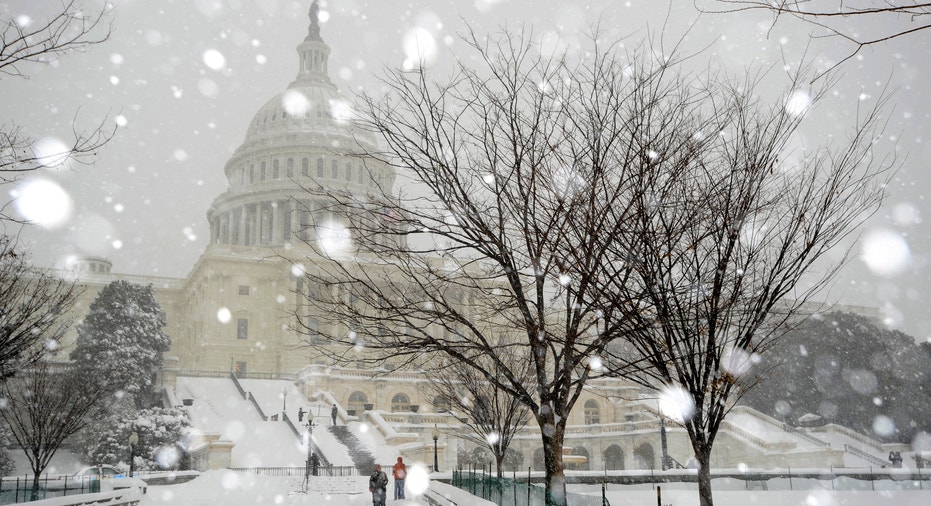Election Brings Fiscal Cliff, Debt Downgrades Back into Focus

A long and grueling campaign season came to an end Tuesday night as President Obama emerged victorious, winning four more years in the White House. But Wednesday, the celebration came to a halt with U.S. markets taking a nosedive. The Dow Jones Industrial Average dipped below the 13000 mark for the first time since September, while the S&P 500 and the Nasdaq each shed more than 2%. Taking a cue from the markets, many worry what the next month will mean for the fiscal cliff scenario -- a combination of tax increases and cuts to government spending -- facing the president and Congress. IHS Global Insight Chief U.S. Economist Nigel Gault believes the nation’s fiscal worries are likely to worsen in the coming months and uncertainties over U.S. fiscal policy will remain firmly in place thanks to a divided government that he says is a “recipe for complete gridlock.” “If the president insists that income taxes on higher-income Americans must increase next year, and House Republicans insist that they must not, we risk complete deadlock and may at least briefly, go off the fiscal cliff at the end of the year,” Gault said in a research note. “This would be a recipe for turmoil in the financial markets and would threaten such a severe shock to the economy that the pressure to come to some sort of compromise would be extreme.” As the nation moves quickly to its December 31st fiscal cliff deadline, Gault said the cutoff might not be as hard and fast as it’s made out to be. He contends the deadlines will be pushed to the first part of the new year in an effort to create a more comprehensive deficit reduction plan that includes tax increases and cuts to entitlement programs. “It would be far better if that agreement were combined with a tax reform that lowers tax rates and broadens the tax base, although that will be hard to accomplish politically because it will create clear winners and losers, and the losers have strong lobbies,” he said. But as debate lingers, the nation’s credit rating comes into play as lawmakers struggle over what to do about the ever-growing national debt. Jonathan Gloub, Chief US Equity Strategist at UBS, said the debate, likely to heat up in the next three to six months, will be “substantially messy and drawn out.” The likelihood, he said, for this Congress to punt the debt crisis to the 113th Congress is a growing possibility. “If you avoid the fiscal cliff, what you’re asking for is those budget deficits to continue on indefinitely,” he said. “And you’re making the assumption the market doesn’t challenge it. If we don’t get a grand bargain, we’re looking at a debt downgrade.”
Moodys Investors Service said delays on budget action are “increasingly likely,” warning it could cut the U.S. credit rating from Aaa. At this point, Standard & Poor’s is the only major ratings service to have slashed the nation’s rating to less than triple-A. But the nation’s credit isn’t the only cause for concern. The 2012 election resulted in no real change in Washington as the president remains in office with Republicans retaining control of the House, and Democrats holding on to a Senate majority. Taking that into consideration, the debt negotiations and looming fiscal cliff create an uphill battle with all the uncertainty in the nation and the markets hurting confidence, and prohibiting major investment commitments. “The electors have had their say, and have again chosen divided government. We must now watch whether the politicians can make that divided government work. With the fiscal cliff approaching, not to mention the need to raise the debt ceiling shortly thereafter, the stakes could not be higher,” Gault said.



















